More money needed for prisons, says Holyrood's justice committee
- Published
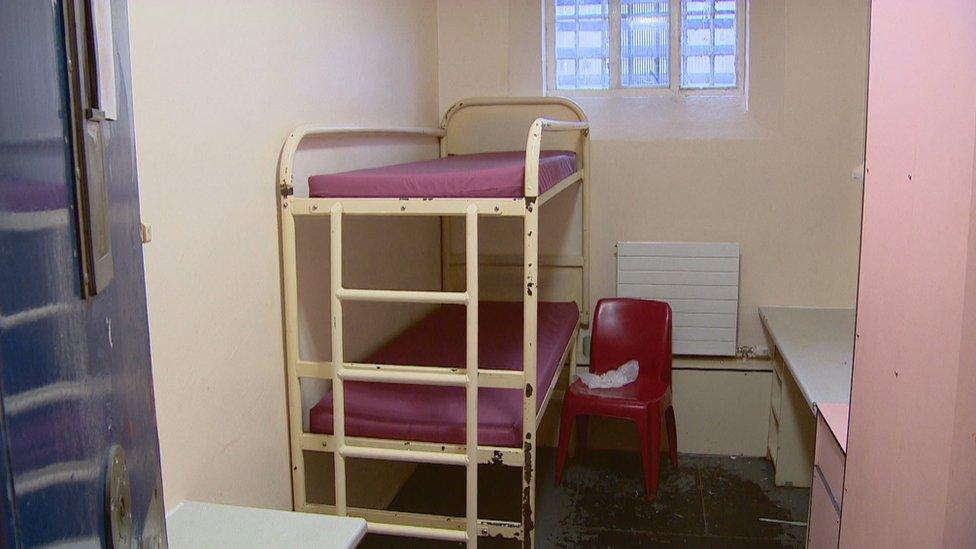
Overcrowding means prisoners in Barlinnie are forced to double up in cells designed for one
More money needs to be spent on the prison service, according to MSPs.
A report , external from Holyrood's justice committee said the Scottish Prison Service (SPS) is under substantial pressure, which is not sustainable.
With prisoner numbers at a near record high, it has also called for work to improve confidence in alternatives to custody.
The Scottish government said it had given extra cash to the SPS - and to criminal justice social work services.
The report is one of a series provided by Holyrood committees to provide recommendations to ministers as they prepare the government's budget, which is expected to be published in January 2020.
In September Audit Scotland said in real terms , externalthe SPS revenue budget had dropped by 14.2% over five years.
The committee pointed out an additional £24m allocated by the government was specifically to allow SPS to buy extra places at Kilmarnock and Addiewell private prisons, to deal with the rising population.
It said: "The committee recommends that the Scottish government makes it clear as part of this year's budget proposals whether similar additional budget cover will be required in 2020/21.
"The committee, taking into account all the costs pressures currently faced by the Scottish government, sees merit in the cabinet secretary for justice base-lining a real-terms increase in the revenue and capital budgets for the Scottish Prison Service for 2020/21."
The justice committee said standards in Scotland's prison estate should be improved to ensure it is fit for the 21st Century.
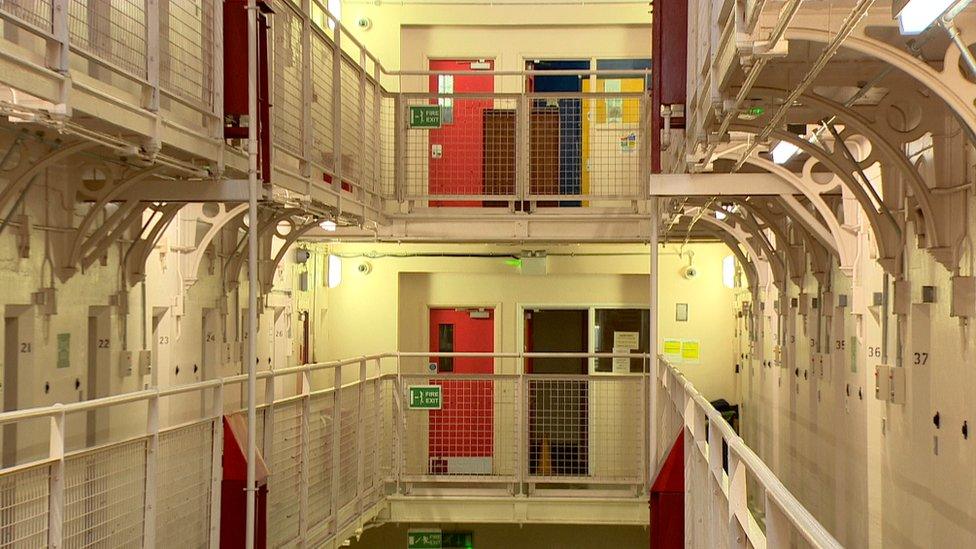
Spending on Scotland's prisons has fallen in real terms in five years as the prison population rose
It said 90% of prisoners in Barlinnie are doubling up in cells designed for one person, breaching the minimum space standard of 4 sq m per prisoner.
Aside from day-to-day running costs, it said the SPS is also facing substantial challenges because of outdated buildings.
"Ageing prisons such as HMPs Barlinnie, Greenock and Inverness are no longer fit for 21st Century standards and, overall, the prison estate is, despite the valiant efforts of staff, not designed to meet the health and welfare needs of an ageing prison population or able to look after prisoners with disabilities.
"HMP Barlinnie, for example, has only five cells suitable to house prisoners with a disability and only one suitable for a prisoner in a wheelchair."

Why is Scotland's prison population rising?
The justice committee heard evidence that the SPS has an operating capacity of 7,676, its design capacity (if all cells were available) is 7886 and its emergency capacity is 8108.
Yet for most of 2019 the number housed in Scotland's jails has been more than 8,200.
One reason is longer sentences handed out by courts; over a decade the average length of sentence given to a life prisoner has risen from around 12 to 20 years.
At the same time, while overall crime remains at historically low levels, more serious crimes are coming before the courts, attracting lengthy jail terms.
More than 70% of current High Court business is sexual offences, the vast majority being non-recent.
Add to this a dramatic reduction in the number of Home Detention Curfews (HDC) granted to prisoners nearing the end of their sentence and allowed to return to the community wearing a tag.
The Chief Inspector of Prisons for Scotland reported in August 2019, external there were 39 men and women on HDCs, compared to 237 a year earlier.
One reason for this was the murder of Craig McClelland in Paisley by James Wright who had torn off his HDC tag.
The SPS chief executive Colin McConnell described this as "error terror" where decision makers in the service were concerned they will be held accountable if they allow a prisoner to be released the something then happens elsewhere.
A final reason for the rise in prisoner numbers is the increasingly high percentage of those on remand awaiting trial.
In August the weekly number of remand prisoners was as high as 1,808. In 1999-00 the weekly average was 976.
The government, which has introduced a presumption against short sentences of a year or less, said remand and bail supervision were priority areas for ministers.

The committee said while there was "no silver bullet" to solving the problems of the prison service, action to improve confidence in alternatives to custody was needed.
It said it was concerned the resources available in some areas resulted in a patchy service and a lack of confidence among sheriffs or judges.
Convener Margaret Mitchell said: "With our prisons worryingly over recommended capacity and high levels of remand prisoners, it is not possible to build our way out of the problem.
"The committee is therefore clear that a wider conversation about plans to increase the use of alternatives to custody and preventative spend must be held in order to move forward and in an effort to properly address this issue."
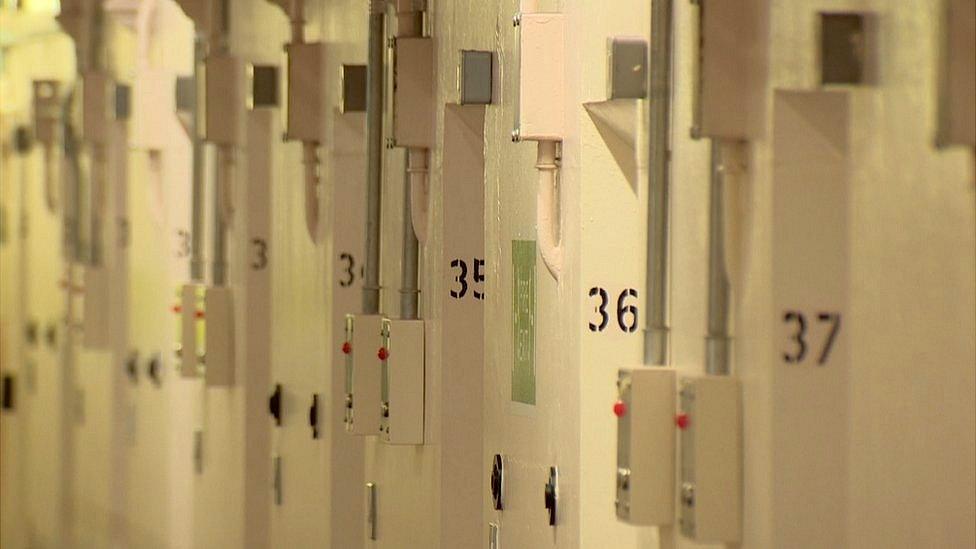
For most of 2019 there have been more than 8,200 prisoners in Scotland - above the SPS emergency capacity
It is to hold a meeting involving the government, members of the judiciary, police and charities delivering programmes designed to offer an alternative to prison.
The Scottish government said it was working closely with SPS to manage the rising prison population.
A spokesperson added: "We will carefully study the committee's report, but we agree that supporting and strengthening the provision of effective alternatives to custody - and building public and judicial confidence in these - is vital in relieving the pressures on prisons as well as reducing reoffending.
"That's why we have extended the presumption against ineffective short prison sentences and increased investment in criminal justice social work services to more than £100m."
Andy Hogg, deputy general secretary of the Prison Officers' Association (Scotland) said the service had been significantly underfunded in recent years.
"Capital investment is badly needed to deal with Victorian prisons and create a safe decent and secure estate.
"Depriving an individual of their freedom should be a last resort used to protect the public when absolutely necessary.
"More alternatives to custody are needed but the sheriffs also need to play their part and use what exists, otherwise we will continue to lock up more of our citizens than most of Western Europe."
- Published22 August 2019
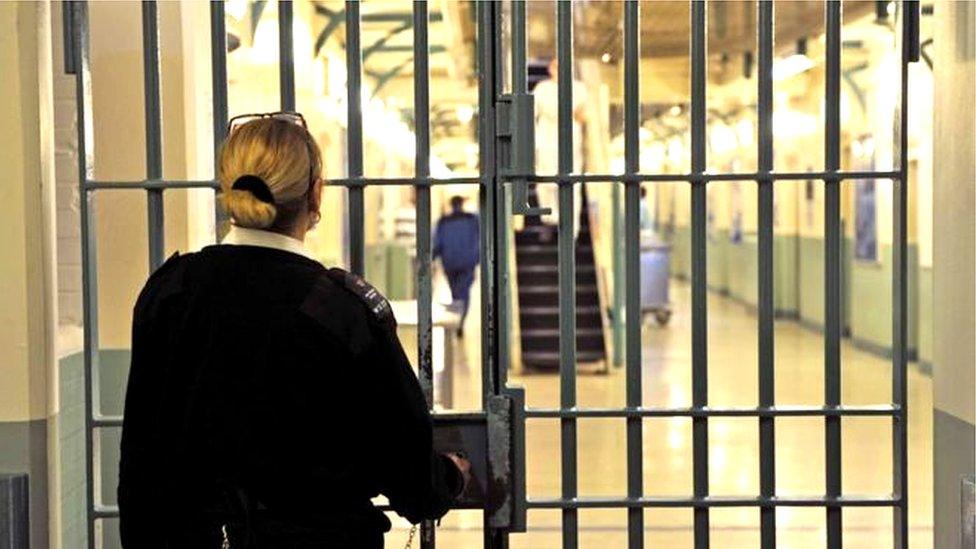
- Published13 January 2019
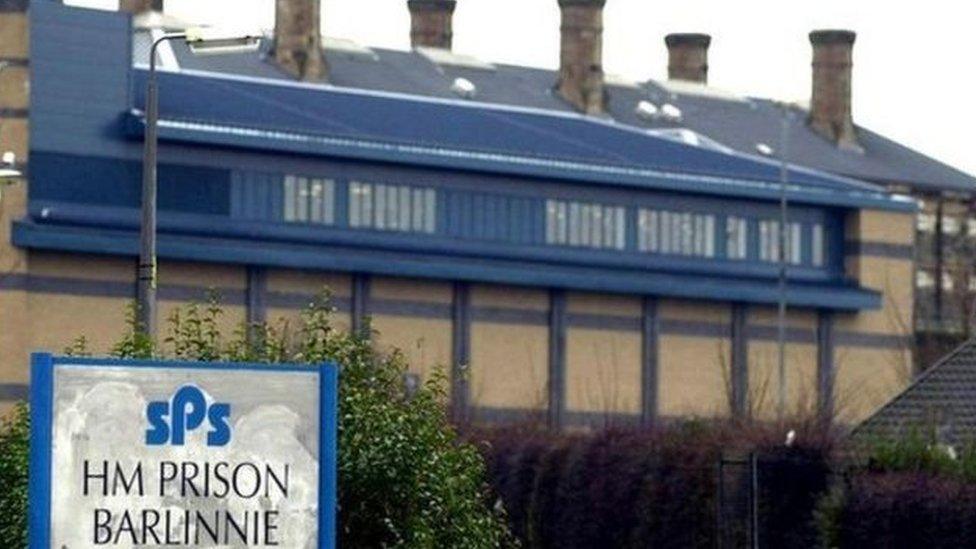
- Published8 October 2019
